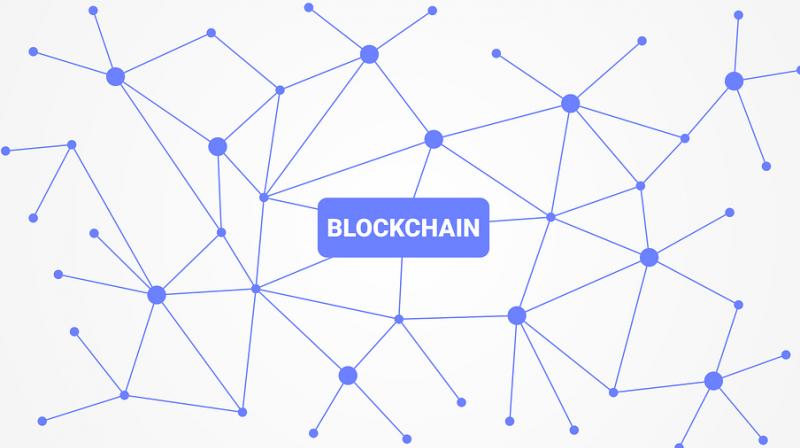Careers perspective in Blockchain and AI: The next big thing

Future and past:
The far-fetched idea of Robotics was introduced in the 1920’s by a Czech writer Karel ÄŒapek through his science fiction play ‘Rossum's Universal Robots’. What was meant as pure Sci-Fi entertainment has now emerged as scientific progress depicting Artificial intelligence (AI), in less than a century. AI and fuzzy logic systems evolved over the years and have shown huge advancements in industries across the board. With such rapid development, various advancements such as highly accurate diagnoses based on medical scans or perhaps much better recommendations to customers from Amazon or Netflix will become available very soon. Imagine a world where the monies given in charity are traceable to the last decimal, literally, as to where what amount went. Fathom a world where each vote is track-able to the individual, thus providing transparency in legitimacy. Certainly policies and privacy concerns need to be implemented to regulate what should be in the public domain and what should be restricted, thus requiring legal experts, system designers and analysts.
What is shaping up?
Thanks to the rapid advancement in technologies, new concepts are coming into existence. The world was awestruck and perhaps many were not prepared for the hullabaloo about Cryptocurrency, popularized by Bitcoin. What most people do not know is that the technology that has powered Bitcoin is the Blockchain.
Even though Bitcoin has had its ups and downs, nonetheless we’re nowhere done with this currency form. Early adaptors of Blockchain technology like Barclays and HDFC are making huge investments to take advantage of the cryptocurrency wave. Cryptocurrency is a digital asset designed to work as a medium of exchange that uses strong cryptography to secure financial transactions, control the creation of additional units, and verify the transfer of assets.
Why Blockchain?
What is unique about Blockchain is that it maintains a foolproof record of each transaction in a ledger format which is shared globally. Each update is called a block. Whenever a transaction warrants an update to an account the update is put forth, the key being, the authenticity of the update.
At this juncture, the Blockchain technology poses a highly complex mathematical puzzle which requires major computing power. Whichever of the networked computers spread globally is able to correctly solve this problem first is authorised to make the update to the ledger, which is published with proper referencing from the previous block thus creating a link to the new block. Thereby building a chain of blocks, and thus the name Blockchain.
The verification process of problem-solving creates the unique authentication thus building the trust in the system. This also eliminates the intermediaries that often thrive on getting their commission by charging exorbitant amounts from the parties involved in the transaction. The Blockchain is not dependent on a single network or system. It is a technology that can be implemented within an organisation privately or made public. Hybrid of a public and private network is considered an ideal way to go in most cases. For instance, using this technology, history of property details in the real estate domain may be preserved publicly keeping the details of the owner private.
The shift in career opportunities
This shift in technology is creating tremendous scope for developers and system architects. Decentralised Autonomous Organisations (DAOs) are coming into existence which does not require a central management. These are democratic companies in the true sense and function automatically. This has made the likes of Bill Gates, Richard Branson, and Elon Musk not only endorse the technology but invest in it as well. Various start-ups and businesses that want to migrate to the new technology are requiring skilled programmers to get them there.
According to Upwork’s Skills Index, out of over 5000 categories, Blockchain is the fastest-growing skill. Listing on Indeed has gone up over 63 per cent for Blockchain jobs. LinkedIn has listed over 2500 search results for Blockchain developer jobs in the US alone.
Role of Blockchain developers
Some of the highest in demand roles include that of a Blockchain Analyst, whose job is to identify opportunities, lead development, and engage technology with business. He/she liaises with top management, IT managers and development teams. This requires technical knowledge to maintain documentation and conduct testing of software implementation.
A Blockchain Data Analyst’s role that is emerging focuses on the analysis of Blockchain data in order to gain insight into the larger Blockchain ecosystem and apply those insights to trading strategies. For the MBAs out there, a Blockchain Project Manager is a good option for those who have had relevant experience in managing teams. Their role would be that of a go-to person for planning and supervising the execution of the Blockchain project.
Domain knowledge for Blockchain developers
Those seeking a designer or developer profile should be confident of their technical skills in JavaScript, C++, python, Neural-networks, Regression, Agile Scrum, MYSQL, and NoSQL. Under the Blockchain domain, this is by far the largest area of demand. Those seeking a technical internship can hope to get a foot in the door of their dream companies due to the steep demand.
Ethereum is a standard Blockchain-based distributed computing platform and operating system. Since it is open-source, stable, and public, it has gained popularity amongst the developers’ community. Knowledge of Ethereum is often assumed as a given by most employers.
With Blockchain technology, possibilities are endless and indeed very exciting. Things are certainly looking up for Computer Science and Information Technology graduates. This is certainly the next big thing from a careers point of view.
By: Yavar Ehsan, Professor of Information Technology, ISBF

